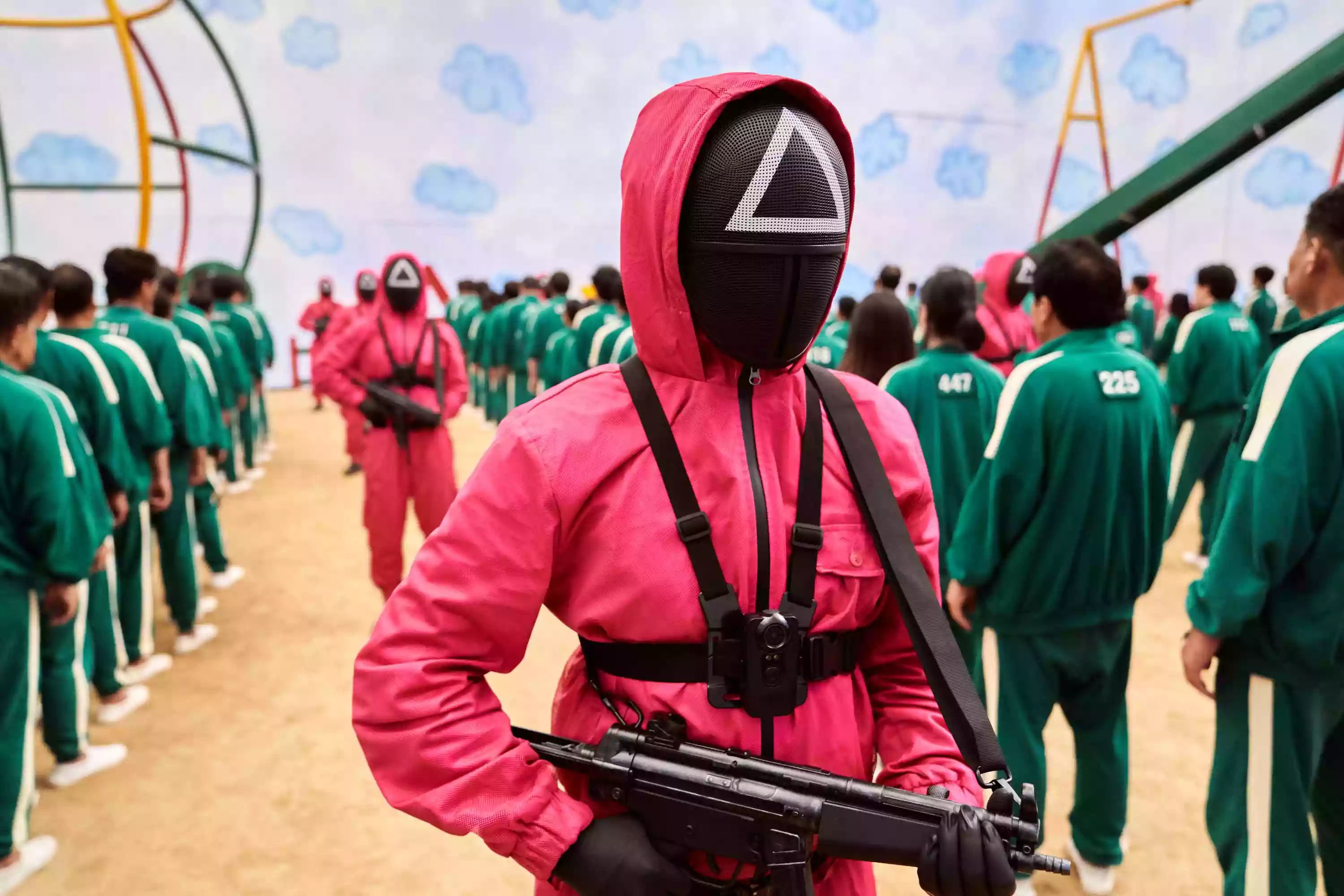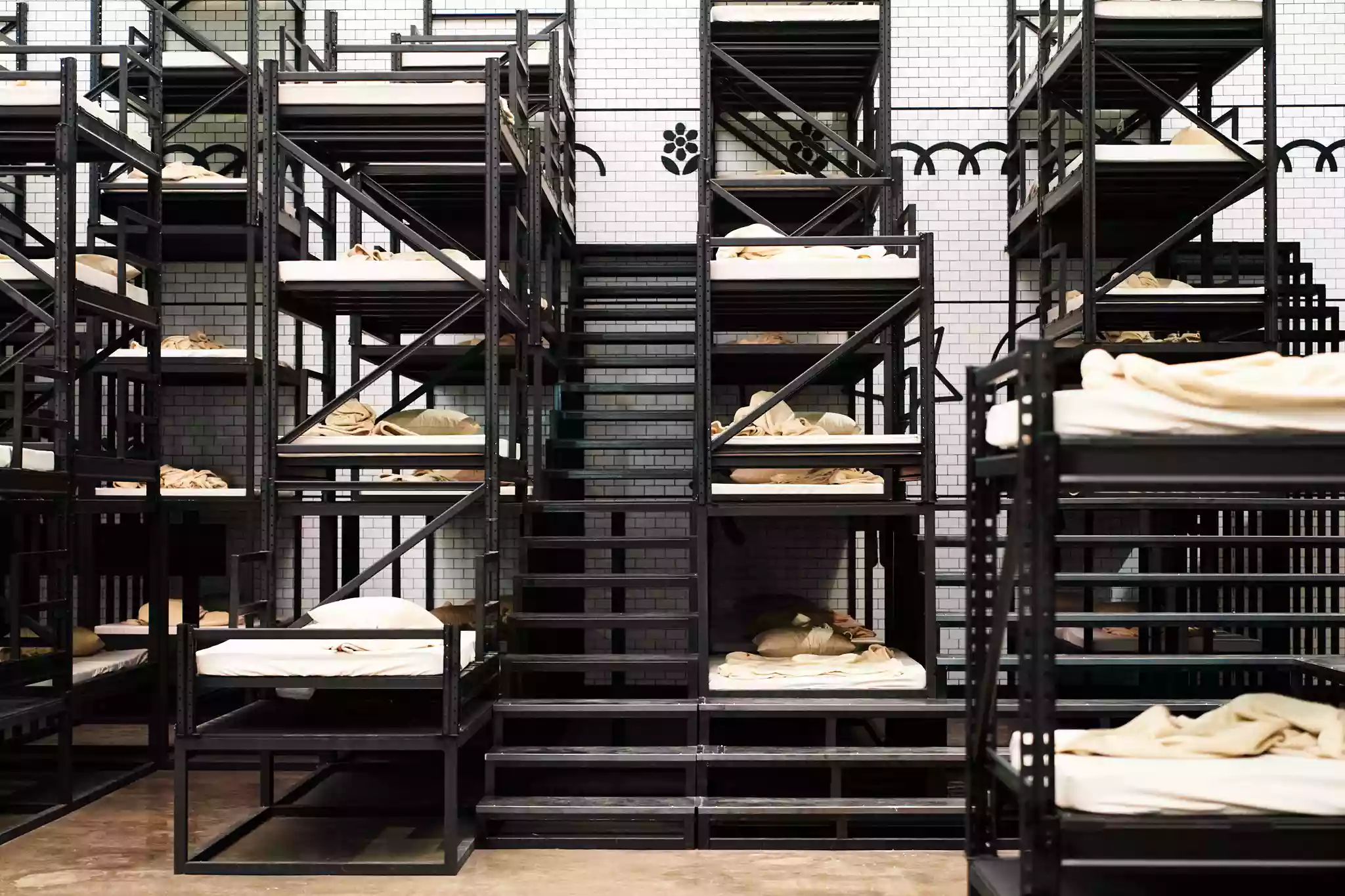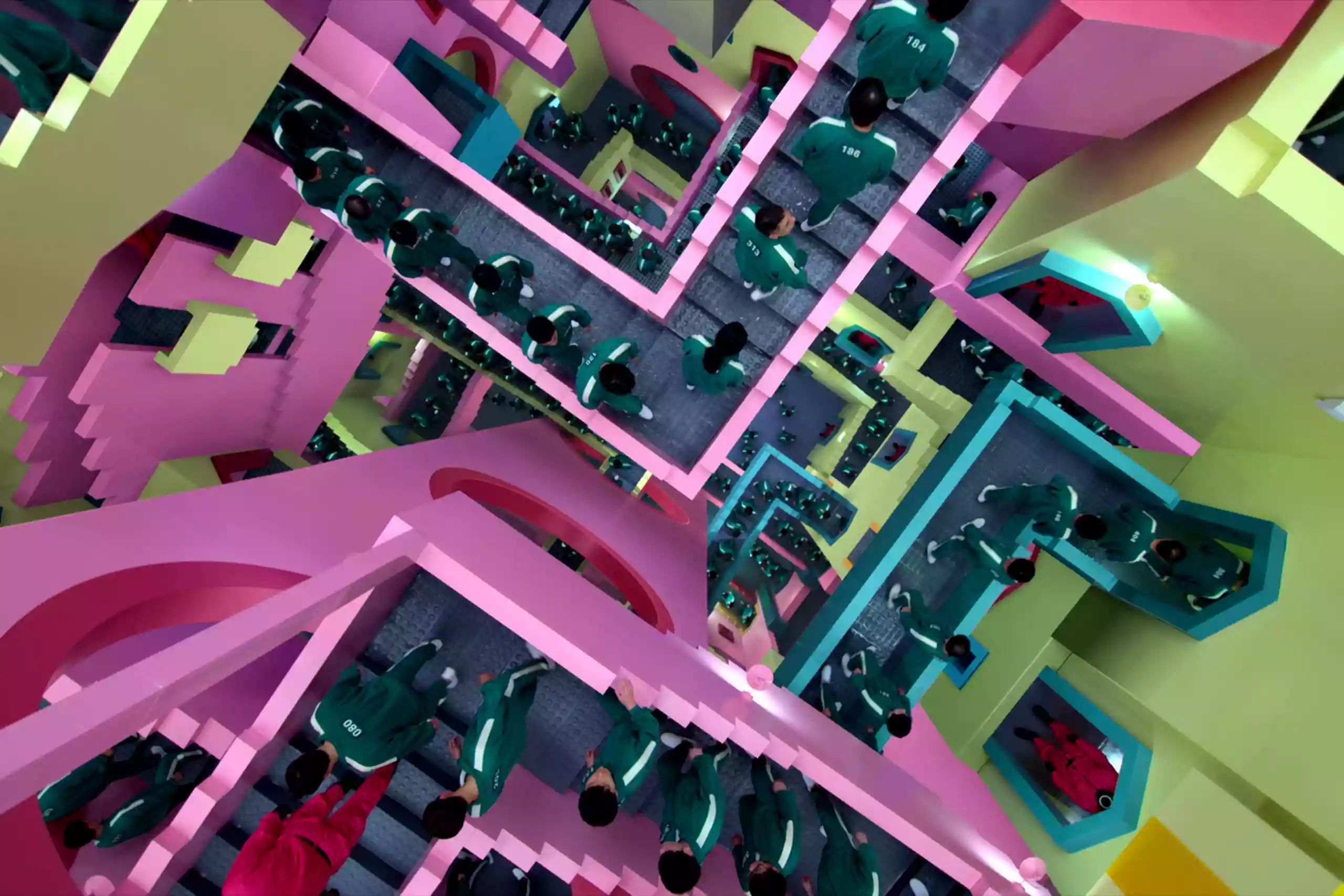Content Warning
This page contains sensitive content comparing fictional scenes with historical events. The comparisons are presented with respect for historical accuracy and the dignity of those affected.
Power Structure

VIP viewers observe contestants from their luxurious viewing room, treating human lives as entertainment. The glass barrier between observers and participants symbolizes the moral distance between those in power and their victims.
Living Conditions

Contestants are housed in a vast, industrial space with stacked beds, stripped of privacy and dignity. The sterile, institutional environment emphasizes the dehumanization of the participants.
System of Control

The game's masked guards enforce rules with lethal consequences, their faceless appearance representing the system's anonymity and lack of accountability.
Creator's Perspective
"These events from our history served as a dark inspiration. Through fiction, we can process trauma that might otherwise be too painful to confront directly."
Cultural Impact
Through its global success, Squid Game has inadvertently brought attention to real historical events that inspired it. This artistic interpretation has sparked renewed interest in investigating and addressing historical injustices, proving that entertainment can serve as a powerful vehicle for historical awareness.
The series' success has led to increased media coverage and public discourse about Brothers' Home, contributing to ongoing efforts for recognition and reconciliation.